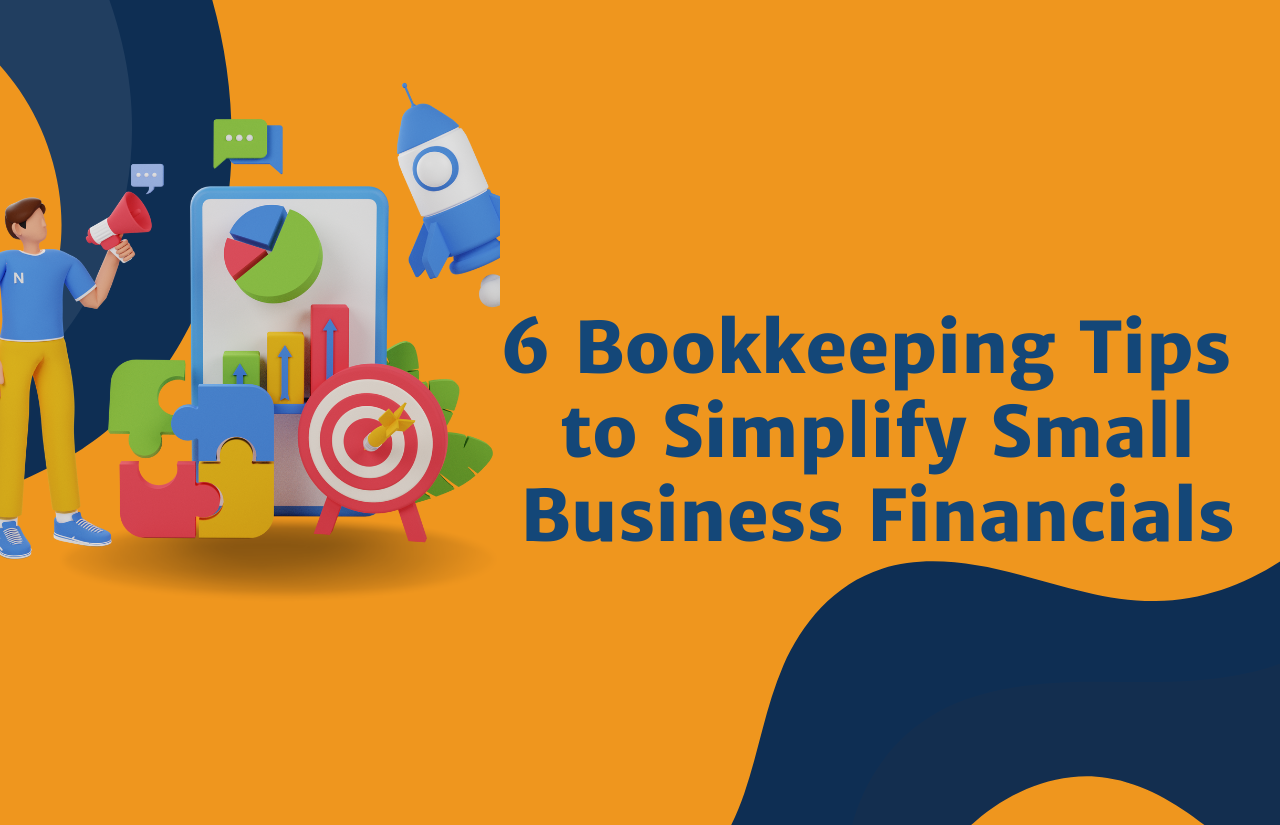If you’re a small business owner, you may wonder how much a bookkeeper costs and how to find affordable bookkeeping services. The answer is not straightforward.
Bookkeeping costs can vary widely depending on several factors.
In this article, we’ll explore the factors that affect bookkeeping costs, the different pricing models bookkeepers use, and the typical bookkeeping costs for small businesses.
We’ll also provide tips on how to save money on bookkeeping costs and find affordable bookkeeping services.
Whether you’re just starting your small business or looking to streamline your bookkeeping process, this article will help you understand the basics of bookkeeping costs. You’ll get
answers about how to hire a bookkeeper that fits your budget.
Let’s jump right in!
Factors Affecting Bookkeeping Costs
Bookkeeping costs can vary depending on several factors, including the size of the business, its location, industry, and complexity.
Here’s a detailed discussion of each factor and how it affects bookkeeping costs:
A. Business Size
The size of your business is one of the most significant factors that affect bookkeeping costs. Generally, the more transactions your business has, the more bookkeeping work is required. The result? Increased cost.
For example, a small business with only a few monthly transactions may only need basic bookkeeping services. On the other hand, larger businesses with hundreds of transactions per month may require more extensive bookkeeping services.
Examples of comprehensive services include payroll processing, inventory management, and tax preparation.
B. Location
The location of your business can also impact bookkeeping costs. Bookkeepers in significant cities or metropolitan areas may charge higher fees due to the higher cost of living. In comparison, rural areas may charge lower prices.
Additionally, bookkeepers may have different rates in different states or countries due to differences in tax laws and regulations.
C. Industry
The industry in which your business operates can also affect bookkeeping costs.
Some industries, such as healthcare, finance, and legal services, may require specialized bookkeeping knowledge and skills, which can increase the cost.
On the other hand, businesses in industries with simple financial transactions, such as retail or consulting, due to work’s nature, may result in lower costs.
D. Complexity
The complexity of your business’s financial transactions and records can also impact bookkeeping costs.
For example, businesses that deal with foreign currencies, multiple locations, or complicated inventory tracking may require more bookkeeping work, which can increase the cost.
Similarly, some businesses use specialized accounting software or have unique accounting policies. Those procedures may require more time and expertise, resulting in higher costs.
Understanding the factors that affect bookkeeping costs can help you estimate the cost of bookkeeping services for your business and negotiate with bookkeepers to find affordable rates.
In the next section, we’ll discuss the different pricing models bookkeepers use and how they affect bookkeeping costs.
Bookkeeping Pricing Models
Bookkeepers typically use three pricing models to charge for their services:
- hourly rates
- flat rates, and
- value-based pricing.
Let’s explore each model and how it affects bookkeeping costs:
A. Hourly Rates
Hourly rates are the most common pricing model used by bookkeepers.
In this model, bookkeepers charge an hourly rate for the time spent on bookkeeping tasks, such as data entry, bank reconciliation, and financial reporting. Depending on the bookkeeper’s experience, location, and industry, the hourly rates model varies.
Businesses with varying levels of bookkeeping needs can benefit from this model, as they only pay for the time spent on bookkeeping tasks.
However, hourly rates can also be unpredictable, as bookkeepers may take longer to complete tasks than expected, resulting in higher costs.
B. Flat Rates
When using a flat rates mode, bookkeepers charge a fixed fee for a specific bookkeeping service, such as monthly financial statements or tax preparation.
Flat rates can provide businesses with a predictable bookkeeping cost, making it easier to budget and plan.
However, we want to point out that flat rates for businesses with varying bookkeeping needs may not be the wisest decision. They could end up paying for services they don’t need or miss out on services they do need.
Additionally, flat rates may not be reflective of the bookkeeper’s actual time and effort, which can result in undercharging or overcharging.
C. Value-Based Pricing
Value-based pricing can be labeled as a newer pricing model used by bookkeepers.
In this model, bookkeepers charge based on the value they provide to the business rather than the time spent on bookkeeping tasks.
Businesses that require more strategic bookkeeping services, such as financial planning and analysis, can benefit from the value-based pricing model.
This model can also align the bookkeeper’s incentives with the business’s goals, as the bookkeeper is motivated to provide high-quality services that deliver value.
However, it can be challenging to calculate appropriately and may require a higher level of trust between the bookkeeper and the business.
This part’s key takeaway is the importance of understanding the different pricing models.
As a small business owner, it will help you choose the suitable pricing model for your business and negotiate with bookkeepers to find affordable rates.
Maybe you are in a place where you are seeking options. Make sure that you explore both, bookkeeping services and DIY.
The following section will discuss the typical bookkeeping costs for small businesses.
Hourly vs. Monthly Rates
When it comes to bookkeeping services, bookkeepers may charge hourly rates or monthly rates.
Hourly rates are based on the amount of time spent on the work. Monthly rates are a fixed fee charged each month for a set amount of services.
Let’s take a closer look at the pros and cons of each pricing method.
Hourly Rates:
Pros:
- More flexibility – you only pay for the time spent on the work
- Better for small businesses with irregular bookkeeping needs
- Affordable pricing structure
Cons:
- It may end up being more expensive if bookkeeping tasks take longer than anticipated
- Harder to predict monthly costs
- Risk of paying for inefficient bookkeepers who take longer than necessary to complete tasks
Monthly Rates:
Pros:
- More predictable and easier to budget for
- Better for small businesses with consistent bookkeeping needs
- Allows businesses to anticipate the cost of bookkeeping services better
Cons:
- It may be more expensive if you have minimal bookkeeping needs
- Less flexibility in services and features
- Higher cost for businesses with fluctuating income
- May require an upfront payment of a monthly rate
So, which pricing method is better for your business? The answer is: It depends on your specific needs and preferences.
We took a step further and did some research, just to make sure. Some of the answers confirm that before any decision- you must understand your bookkeeping needs.
If you have irregular bookkeeping needs or a smaller budget, hourly rates may be the better choice. On the other hand, if you have consistent bookkeeping needs and prefer predictable costs, monthly rates may be the way to go.
In terms of average rates, hourly rates typically range from $50 to $150 per hour, while monthly rates can range from $200 to $600 per month.
Of course, these rates can vary widely depending on the size of your business, the complexity of your bookkeeping needs, and the expertise of your bookkeeper.
It’s important to point out that some bookkeepers may also charge a flat fee for specific services—for example, tax preparation or payroll processing.
Be sure to ask your potential bookkeeper about their pricing options so you can make an informed decision.
How to Find Affordable Bookkeeping Services
Up till now, we’ve discussed the average costs of bookkeeping services and the factors that impact those costs.
How about exploring some tips for finding affordable bookkeeping services for your small business?
Determine your bookkeeping needs: Before you start searching for bookkeepers, it’s essential to determine exactly what you need in terms of bookkeeping services.
It will help you avoid paying for unnecessary services and ensure you find a bookkeeper who can meet your specific needs.
Shop around: Don’t settle for the first bookkeeper you come across. Shop around and compare rates and services from multiple providers to find the best fit for your business.
Look for bookkeepers who specialize in small businesses: Bookkeepers who specialize in small businesses are often more affordable. They can also provide customized services that meet the unique needs of small businesses.
Consider virtual bookkeeping services: Virtual bookkeeping services can be more affordable than traditional in-person services. Because of the work’s nature, they don’t require the bookkeeper to be physically present at your business location.
Ask for referrals: Ask other small business owners in your network for referrals to bookkeepers they’ve worked with in the past. It’s an excellent opportunity to research a bit more.
Don’t skip this step, because it will help you find a bookkeeper who has a proven track record of providing affordable and reliable services.
Negotiate pricing: Don’t be afraid to negotiate pricing with potential bookkeepers. Many bookkeepers are willing to work with small business owners to find a pricing structure that works for both parties.
By following these tips, you can find affordable bookkeeping services that meet your specific needs and budget.
We just want to point out that, while you explore all the options you could learn how to automate the bookkeeping process. Just to give yourself a bit of peace.
Remember, bookkeeping is an important investment in the success of your small business, so it’s worth taking the time to find the right provider.
In the next section, we’ll discuss how to budget for bookkeeping costs to ensure that you’re making the most of your investment.
Conclusion
Bookkeeping is essential to running a small business, but knowing how much it should cost can be challenging.
Understand the average bookkeeping costs for small businesses and the factors that impact those costs and be better prepared to find affordable bookkeeping services.
When determining the cost of bookkeeping services, remember to consider factors such as:
- the size of your business
- the complexity of your finances, and
- the level of expertise you require.
“How much should I pay for bookkeeping services” is a frequently asked question. We provide you with one of many out there.
Hourly and monthly rates each have benefits and drawbacks, so choosing the structure that works best for your business is important.
When it comes to finding affordable bookkeeping services, be sure to shop around, consider virtual options, and ask for referrals.
The research will open new perspectives, as a small business owner. You will gain knowledge about common bookkeeping mistakes. Also, how to align the benefits of outsourced bookkeeping in order to grow your business.
You can find a bookkeeper who can provide the services you need at a price you can afford if you follow the steps above.
At the end of the day, investing in bookkeeping services is an investment in the success of your small business.
By budgeting appropriately for bookkeeping costs, you can ensure that you’re making the most of that investment and setting your business up for long-term success.



